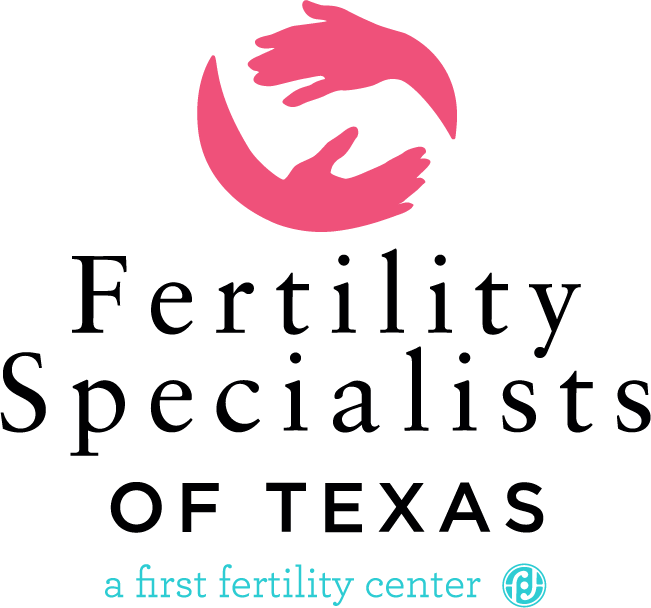

For nearly six weeks, millions of couples across the country have anxiously awaited the reopening of fertility centers and the resumption of treatment.
On March 17, 2020, the American Society for Reproductive Medicine (ASRM) issued guidelines that called for the postponement of most all treatment cycles and procedures in the wake of the COVID-19 pandemic, heightening an already heartbreaking battle for infertility sufferers.
Fertility Specialists of Texas (FST) implemented the recommendations, essentially halting business — and family-building.
“We had to ask our patients to put their dreams on hold,” said Dr. Jerald Goldstein, medical director and founder. “It was not an easy decision, but it was a necessary one.”
On April 27, 2020, guided by ASRM’s recent update and in accordance with state and local health officials, FST reopened its doors with a heightened focus on safety. In addition to stringent sanitation and sterilization protocols, newly implemented policies include:
- Call/Text Notification: Patients must call FST upon arrival in the office parking lot and wait in their vehicles until they receive a text to come to the office for their appointments.
- No Guests: Only FST patients will be allowed into the office. Partners, family and friends will not be allowed to attend appointments.
- Medical Screening: Travel and symptom questionnaires and temperature checks will be performed upon arrival. Any patient with a temperature greater than 100 will be sent home and the appointment rescheduled.
- PPE: Patients must wear protective masks at all times while in the office. FST staff will wear additional layers of protection.
- Closed Bathrooms: The office restrooms will be unavailable; patients should use facilities prior to arrival.
- Modified Schedule: Appointments will be made on a staggered schedule to allow for social distancing in patient waiting and exam areas.
“While our team is excited to treat patients again, to help them grow their families, we have reopened in a landscape that has been dramatically altered by the COVID-19 pandemic. This demanded swift and dramatic change to the way we move forward,” said Dr. Goldstein.
FST, which has offices throughout North Texas, reopened its main location in Frisco, which houses its state-of-the-art IVF lab. The remaining locations in Dallas, Rockwall, and Southlake will follow as soon as it is possible to do so.
“Business as usual is not an option in a pandemic era,” said Dr. Goldstein. “We help patients become parents and while that is an honor and a privilege, it also comes with a great responsibility that we must respect.”
FST has been growing families throughout the country and around the world for 15 years and is committed to delivering the same care and treatment patients have come to expect.
“We refuse to let our patients’ successes be altered by this novel virus,” said Dr. Goldstein. “They deserve to see their dreams realized and we are more committed than ever to helping make that happen.”
Frequently Asked Questions
Q: What is Fertility Specialists of Texas doing to safeguard its patients, staff and overall practice in light of the risk of coronavirus/COVID-19?
A: FST is implementing every precautionary measure advised by the CDC, WHO, ASRM and local public health authorities and has instituted the following:
- Telemedicine: All consultations and follow-ups are available via virtual visit.
- Call/Text Notification: Patients must call FST upon arrival in the office parking lot and wait in their vehicles until they receive a text to come to the office for their appointments.
- Patients Only: For the immediate future, patients may not be accompanied to any in-office appointments in accordance with social distancing and group gathering restrictions.
- Screening: Medical screenings are being conducted via phone and at check-in to minimize possible exposure to all patients and staff. Any patient exhibiting symptoms or has known exposure will not be seen in the office. This applies to our FST team members, as well. Additionally, any patient who arrives with a temperature of 100 or greater will be sent home and the appointment rescheduled.
- PPE: Patients must wear protective masks at all times while in the office. FST staff will wear additional layers of protection.
- Closed Bathrooms: The office restrooms will be unavailable; patients should use facilities prior to arrival.
- Modified Schedule: Appointments will be made on a staggered schedule to allow for social distancing in patient waiting and exam areas.
- Cleaning: Sanitizing and disinfecting protocols have been heightened and implemented, including additional cleanings of all points of contact between staff and patients.
- Commitment to Safety: FST safety protocols are being reviewed daily and updated to reflect the latest regulations advised by the CDC.
Q: As a patient, what can I do to ensure safe treatment?
A: FST is making every effort to mitigate social exposure and virus transmission; it’s imperative, however, that each patient is an advocate for his/her health, as well:
- Practice social distancing in the FST waiting room whenever possible — a minimum of six feet between yourself and others.
- Wash hands thoroughly (backs of hands, between fingers and under nails) with soap and water for a minimum of 20 seconds — the time it takes to hum “Happy Birthday” twice.
- Apply hand sanitizer that contains at least 60% alcohol throughout the day.
- Avoid touching your face, nose, and eyes.
- Cover coughs and sneezes with a tissue. In the absence of one, cough/sneeze into your upper sleeve or elbow (not your hands).
Q: Are in-office appointments still available?
A: All new patient appointments, financial consultations, and follow-ups are available via virtual visit. Our financial services team is working with insurance providers to ensure patients are billed appropriately.
Q: What care is available at Fertility Specialists of Texas during the COVID-19 crisis?
A: We have resumed all treatment options, however, we are doing our due diligence to help prevent the spread of COVID-19 and are adhering to public health guidelines.
Q: How will my treatment cycle be impacted?
A: We are committed to delivering the care and treatment you have come to know and expect at FST. As always, it is our goal to help you achieve a safe and healthy pregnancy. In the pandemic era, however, it is necessary to be more cautious when it comes to closely monitoring you for possible COVID-19 symptoms during treatment. Exhibiting any possible symptoms may result in the cancellation of appointments, procedures, cycles, and surgeries.
Q: Will COVID-19 have a direct effect on the success of my treatment cycle?
A: The American Society of Reproductive Medicine (ASRM) offers the following: “Currently, very little is known about the impact of COVID-19 on reproduction and pregnancy. There are reports of women who have tested positive for COVID-19 delivering babies free of the disease. This data is reassuring but must be interpreted with caution given the small numbers.
Other forms of coronavirus have been linked to increased adverse outcomes during pregnancy, but data specific to COVID-19 is not yet available. … Given the information we do have, while it would be wise for individuals with confirmed or presumed COVID-19 infection to avoid pregnancy, there appears to be no cause for alarm for those already pregnant.”
Review ASRM’s frequently asked questions section for additional details.
Q: I’m pregnant; how will COVID-19 impact my health and the health of my pregnancy and child?
A: According to the CDC:
- There are no published scientific reports about the susceptibility of pregnant women to COVID-19.
- Pregnant women naturally experience changes to their immune system, as well as physiologically which could make them more susceptible to viral respiratory infections, including COVID-19.
- Currently, there is no information regarding adverse pregnancy outcomes in relation to COVID-19. Pregnancy loss has been noted in cases of other related coronavirus infections (SARS-CoV, MERS-CoV).
- High fevers during the first trimester can increase the risk of certain birth defects.
COVID-19 Fast Facts
The following information has been provided by the CDC:
- There is currently no vaccine to prevent COVID-19; the best way to prevent illness is to avoid exposure to it.
- The virus is primarily spread from person to person, those in close contact (within 6 feet of each other) and through respiratory droplets via coughs, sneezes and talking.
- COVID-19 can be contracted by anyone at any time, regardless of race or ethnicity.
- Being in close contact with someone who has COVID-19 or people who live in or have been in an area with an active spread of the virus are at an increased risk of exposure.
- When in public, wear a cloth face mask that completely covers your nose and mouth.
- Patients who have completed quarantine or have been released from isolation do not pose a risk of spreading infection.
- Clean and disinfect frequently touched services daily, including cell phones, keys, doorknobs, light switches, etc.
For the latest updates, please visit the CDC’s dedicated COVID-19 page.



